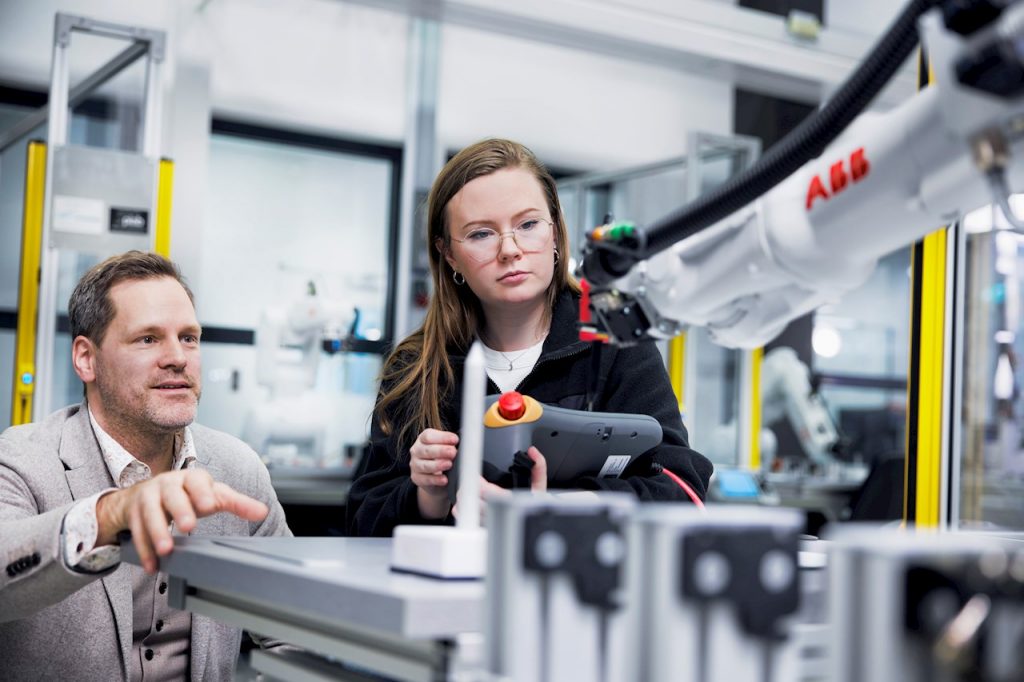
Businesses need to commit significant investment into continuous education to prepare industrial workforces for a coming age of robotics and automation, technology company ABB has concluded following an industry survey.
The firm found a growing trend among US and European businesses towards re-shoring or near-shoring their operations to build supply chain resilience.
The majority view automation as the enabler of these shifts, with 70% planning to invest in robotics and automation to support this over the next three years.
However despite the appetite for automation, ABB’s 2022 global education survey found a significant gap in the education and training needed to produce the skills required for work in increasingly connected and automated workplaces.
Of the global education professionals surveyed, 80% believe robotics and automation will shape the future of employment in the next ten years. But only one in four education institutions currently use robots as part of their teaching programs.
“Businesses are shifting existing structures and adopting new technologies to future-proof their operations for a variety of challenges and uncertainties, with robotic automation playing a key role,” said President of ABB’s Robotics & Discrete Automation business, Sami Atiya.
“As companies turn to robotic automation to offset labor shortages, improve efficiency and increase resilience, workers need the skillsets to use automation to perform their jobs and augment their own roles.
“Change needs to happen now,” he added. “Businesses need to join forces, cooperating with education institutions and governments to ensure that society is prepared for jobs of the future.”
To help bridge the skills gap, ABB says it has bolstered its global robotics and automation education programme with new training centres, expanding these to over 40 sites globally including a new regional training centre in the UK.

